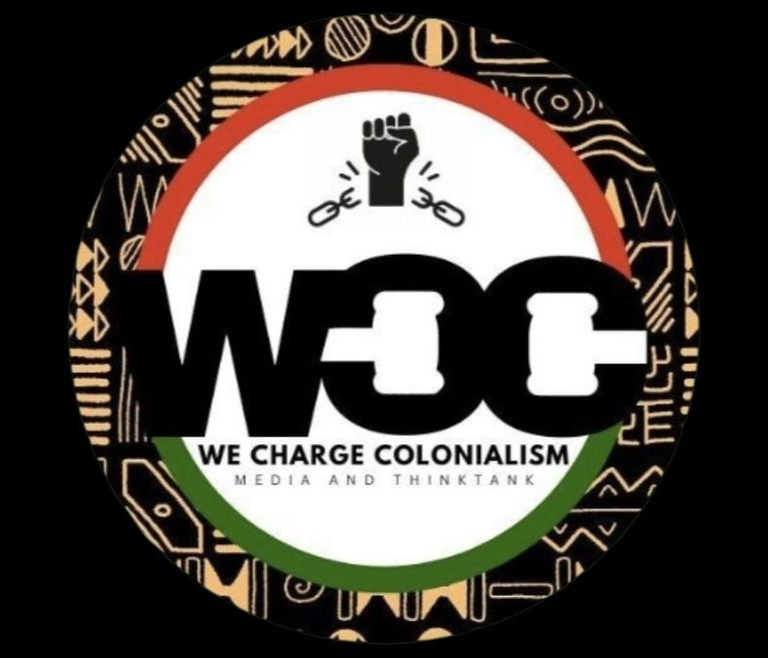Recognizing African Liberation Day through the Lens of African Internationalism
A comprehensive analysis of the importance of ALD today
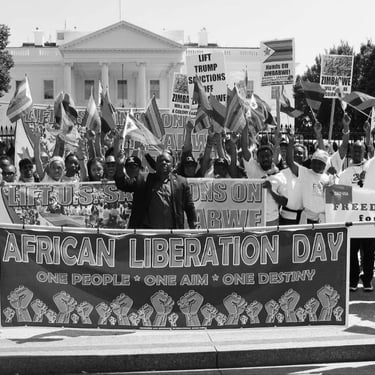
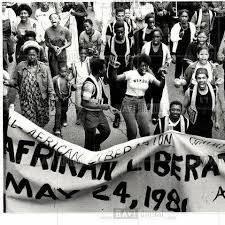
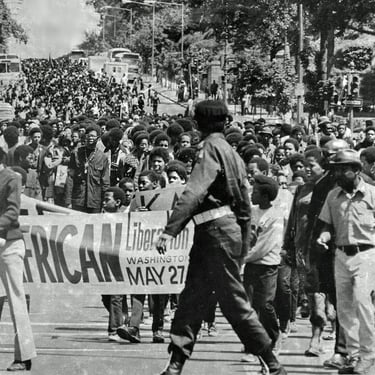
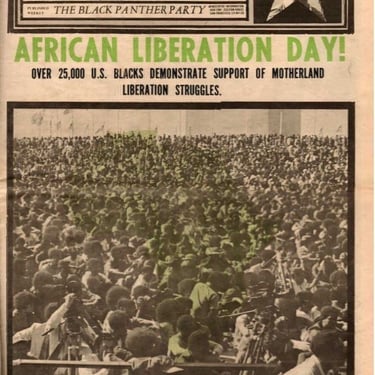
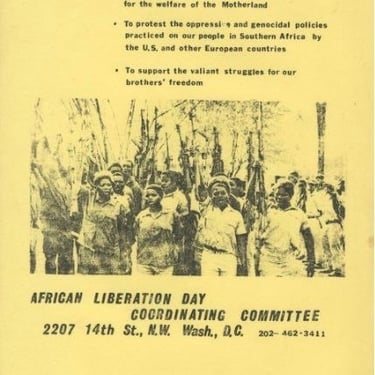
African Liberation Day (ALD) is not meant to be a day of celebration, but one of recognition of the work that still needs to be done. It is a day where African revolutionaries uplift their victories and examine their defeats, with the understanding that Africans remain a colonized people. When one thinks of African Liberation Day, the names of Kwame Nkrumah, Patrice Lumumba, Malcolm X, Kwame Ture, Thomas Sankara, and many others should come to mind. If not, then you have little understanding of its significance. This article examines the history and importance of African Liberation Day through the lens of African Internationalism, and the continuing struggle to liberate Africa and African people across the globe.
African Internationalism is an African social theory and practice developed by Chairman Omali Yeshitela of the African People’s Socialist Party. It is a theory that explains the world as it is, not as we wish it to be.[1] Yeshitela explains, “African Internationalism is simply the worldview stemming from a historical materialist investigation and analysis of the world with its starting point being the experience and role of Africans and Africa in the advent of capitalist-imperialism as the rise of white power.”[2] African Internationalism allows the oppressed African working class to analyze and comprehend the world through their own experiences. It does for the African working class what Marxist theory could never accomplish. It centers the African experience and transforms them into subjects as opposed to objects of history. This makes for a more accurate understanding of the context, history, and significance of ALD.
African Internationalism, as taught by Chairman Omali Yeshitela, demands that we organize ALD through a African revolutionary lens. African Liberation Day was created out of the revolutionary theories and practice of some of the great African leaders of the time. On May 25th of 1963, thirty-one African Heads of state convened a summit meeting to establish the Organization of African Unity (OAU). Led by Kwame Nkrumah, they proclaimed May 25th African Liberation Day.[3] This was six years after Ghana became the first African nation to liberate itself from a European colonial power. At the time, somewhere around ninety percent of Africa was under the control of some European nation. Nine years later, the first ALD mobilization in the United States was held on May 27, 1972. It was called to support the various liberation struggles that were still being fought in Africa, particularly in Southern Africa, from Mozambique to Occupied Azania (South Africa).[4] Born out of revolution, African Liberation Day continues to symbolize the fight to eradicate colonialism.
As a result of the continuing struggle to end colonialism throughout the 1960s and 1970s, African colonies began to gain their independence. The African diaspora started to look toward Africa as a model of what was needed to liberate colonized Africans in the western hemisphere. In a 1964 speech, Malcolm X exclaimed,
nationalism is the wave of the present and the future. It is nationalism that is bringing freedom to oppressed people all over the world. It was nationalism that brought freedom to the Algerians. It was nationalism that brought freedom to the Nigerians and to the Ghanaians. It was nationalism that brought freedom to people of Uganda and Tanganyika and Sudan and Somaliland. It was nationalism that brought about the freedom of every oppressed people. They have studied the tactics and the strategy and the message of all of the African nations who have emerged and have won their independence…And you and I will get it through nationalism.[5]
The nationalist fervor in Africa became infectious, and the rise of Black nationalist, internationalist, and Pan-Africanist organizations in America began to proliferate. But African celebration of independence was short lived due to the betrayal of the revolution. The African working class quickly learned that national independence was a façade. They learned that white rule over African nations was preserved through indirect rule. Kwame Nkrumah admonished Africans that the last stage of imperialism would be neocolonialism. Nkrumah stated,
the neo-colonialism of today represents imperialism in its final and perhaps its most dangerous stage…In place of colonialism as the main instrument of imperialism we have today neo-colonialism. The essence of neo-colonialism is that the State which is subject to it is, in theory, independent and has all the outward trappings of international sovereignty. In reality its economic system and thus its political policy is directed from outside.[6]
In his analysis of neocolonialism, Chairman Yeshitela adds,
While colonialism reveals itself as the direct foreign and economic domination of a people, neocolonialism disguises this domination by allowing nominal political independence. Under neocolonialism imperialist rule is indirect and is carried out by the indigenous imperialist puppets who administer a country, government and people for the imperialists who are able to continue political domination through control of the economy.[7]
It the year 2022, Africans are still fighting to liberate themselves from colonial conditions due to the alignment of the African bourgeoisie with the imperialists. This is a phenomenon not limited to Africa, but exist in the diaspora, in cities like New York, Atlanta, and Philadelphia. The illusion of political power has been obfuscated by Black faces in political office. But the mere holding of a political position does not translate to political power without the control over life sustaining institutions. Wilson asserts,
Black politicians and activism without the Black ownership of and control over primary forms and bases of power such as property, wealth, organization, etc. is the recipe for Black political and non-political powerlessness. The rather obtuse pursuit of political office and the ballot box as primary sources of power by the Black community and its politicians without its concomitant ownership of and control over important resources, has actually hindered the development of real Black power in America.[8]
As long as white people control the means of production and distribution, land, and labor, it will not matter how many Black mayors, council people, judges, or chief of police there are. Unfortunately, these people have done more to legitimize and sustain white colonial rule, then to delegitimize white domination.
An examination of the significance of African Liberation Day must be explored in the context of six hundred years of European imperialism, an imperialism that has its origin in the defeat and exile of the Moors from Al-Andalus. In 1415, the Portuguese followed the defeated Moors into Africa, which opened the door for the trade and enslavement of Africans. It was during this century that a series of Papal Bulls were issued by the standing Pope. Papal Bulls like Dum Diversas, Romanus Pontifex, and Inter Caetera deemed that all non-Christians can be reduced to perpetual servitude, and that undiscovered lands could be claimed by Christian nations. During the sixteenth century, as taught in the Eurocentric history books, Europe was experiencing a time of rebirth; a period known as the Renaissance. Historians emphasize the philosophical and artistic advancements that were made during this period. But Europeans were more concerned with changing their material conditions, than with the artwork of Leonardo and Michelangelo. Europeans were not only inspired by the philosophical and artistic production of Greece and Rome. They were exceedingly interested in the political, economic, and military might of these empires. Europe wanted to resurrect the imperial and colonial practices of Ancient Greece and Rome. The stage was set for European imperialism; nowadays they call it globalization.
Globalization is imperialism by another name and African people must be keen to describe it as such. The oppressors have historically defined the reality of the oppressed. Their ability to define phenomenon has obscured acts of repression and subjugation of African peoples. The oppressed, in the struggle for liberation, must regain the power to define phenomenon. Kwame Ture, Pan-Africanist revolutionary, stated, “we shall have to struggle for the right to create our own terms to define ourselves and our relationship to society, and to have these terms recognized. This is the first necessity of a free people, and the first right that any oppressor must suspend.”[9] An African Internationalist is well cognizant of the importance of defining their reality. It is transparent that European democracy is colonialism, capitalism is the economic oppression and exploitation, and globalization is imperialism.
When discussing African Liberation Day, the history of the subjugation of Africans should be highlighted, but additionally, moments of African resistance must be uplifted. In 1839, one such instance occurred with the Amistad mutiny. After being captured and sold off the port of Sierra Leone, more than fifty Africans aboard the Amistad were transported from one Cuban port to another. Most of the captives came from Mende country, but others were Kono, Sherbro, Temne, Kissi, Gbandi, and Loma.[10] These Africans aboard the ship, La Amistad, were destined to meet the fate of their millions of African brothers and sisters that were enslaved in the Americas. But time revealed that these captives had something different in mind.
Sengbe Pieh, one of the captured, and others, were determined to break free from their bondage. Pieh daily observed his captors’ behavior, considering their numbers. One night, Antonio, a creole slave, entered the slave deck to check on the captives. Burnah, another one of the captured, asked Antonio where they were being taken, and according to author William A. Owens, “Antonio shook his head with the air of one who knows much but chooses to say nothing.”[11] Antonio is representative of the neocolonialist, or what Malcolm X called the house Negro. The one whom does not want to threaten their comfortability for the comfort of the masses. Sengbe Pieh distrusted this Creole slave because he mimicked too easily the manners of Spaniards; he spoke their language with too great fluency. Pieh believed that his heart and soul belonged to his masters.[12] It was clear that Antonio no longer identified himself with the exploited and oppressed. He was now an accomplice in their enslavement, and a barrier to their liberation. Pieh observed that the African captives outnumbered the crew, forty-nine to seven, and that the only advantage the whites possessed were the chains that held the Africans. This representative of the many held back today by the psychological chains of slavery and colonialism. Without these chains the balance of power would shift; therefore, breaking free from these chains is essential in the process of revolution. Presently, Africans still outnumber their captors, with nothing to lose but their chains. The lessons of the Amistad are important for African freedom fighters. The Africans aboard the Amistad understood their shared destiny. Owens asserts, “one night the enslaved huddled close together in the heat of the slave deck, Mendi, Temne, Kono, it did not matter, they were all black people, brought together through their shared misfortune.”[13] All their differences, cultural and otherwise, did not matter in the moment of bondage. One night, after breaking from their chains, the one thing that gave the Europeans their advantage, Pieh gave the following address: if we do nothing, we will be killed. We may as well die trying to be free, as to be killed and eaten – by white men.” What will we do? They begged him. We will kill the Captain, and the cook, and the sailors, and Antonio.”[14] Pieh knew that every threat to liberation had to be eliminated, from the slave masters down to the house Negroes; those that worked with the oppressor against the interests of the oppressed. After successfully taking control of the ship, Owens asserts, “they were free, and in command of a vessel that would take them back to Africa. Theirs was the Amistad. Theirs the forbidden barrels of beef on deck, the casks of water, the stores of food below for the Captain and crew.”[15] The Amistad serves as a lesson for the African working class, that through revolution comes the spoils.
The action taken by the Africans on the Amistad is illustrative of what it will take to overthrow colonialism. This was a violent event, but the capture and enslavement of Africans were equally as violent. Millions of Africans lost their lives through human trafficking, slavery, and colonialism. The necessary severing of this oppressive relationship will not come without consequence. Fanon wrote about the process of the oppressed replacing their oppressors and concluded:
In its bare reality, decolonization reeks of red-hot cannonballs and bloody knives. For the last can be the first only after a murderous and decisive confrontation between the two protagonists. This determination to have the last move up to the front, to have them clamber up the famous echelons of an organized society, can only succeed by resorting to every means including, of course, violence.[16]
The colonized will have to come to terms with this revelation, that is, the struggle for liberation will be bloody. But as Malcolm X once proclaimed, “you’re afraid to bleed.” The irony of it all is that Africans have been bleeding for the past six hundred years. This blood is a result of slavery and the colonial conditions in which Africans are forced to endure. The acceptance of these conditions and their eventual demise is what Huey P. Newton described as reactionary suicide. As Newton explained,
This death is found everywhere today in the Black community. Its victims have ceased to fight the forms of oppression that drink their blood. The common attitude has long been: what’s the use? If a man rises up against a power as great as the United States, he will not survive.[17]
Newton is describing the invariable assault on the Black liberation movement that have made many Africans hesitant to go up against the colonial machine. But liberation will only come about through complete annihilation of the colonial machine. Newton further contends, “I do not think that life will change for the better without an assault on the establishment, which goes on exploiting the wretched of the earth. This belief lies at the heart of the concept of revolutionary suicide. Thus it is better to oppose the forces that would drive me to self-murder than to endure them.”[18]
Newton echoes Fanon, who asserted, “you do not disorganize a society, however primitive it may be, with such an agenda if you are not determined from the very start to smash every obstacle encountered.”[19] African Liberation Day is recognized by the African revolutionary because they are conscious of their colonial conditions. The African Internationalist, as taught by Chairman Omali Yeshitela, understands what it will take to dismantle the colonial system. The African Internationalist is an African revolutionary, working to eradicate the international political regime which is the source of their oppression and exploitation. ALD serves as a reminder of the goals and objectives of the oppressed African working class, which is the absolute destruction of colonialism, and the unification of Africa and African people.
There are many who will stand in the way of the consolidation of Africa and African people. These self-interested actors will do nothing to challenge European imperialism. They are apologist for the international political regime and seek a position within the empire. These “Antonios” are enemies of the African liberation movement. They are content to live in a world that has been created at the expense of African life. The biggest threat to the survival of Africans is the continuing economic dependency on foreign powers, and our continuing link to the European international political economy. The liberation of African people will require cooperation and unification against this system. Malcolm X stated: it is time for all African-Americans to become an integral part of the world’s Pan-Africanists, and even though we might remain in America physically while fighting for the benefits the Constitution guarantees us, we must “return” to Africa philosophically and culturally and develop a working unity in the framework of Pan-Africanism.[20] African Liberation Day is about reinforcing the necessity of Pan Africanism, but with revolutionary ideology. African Internationalism epitomizes that ideology.
Finally, in the words of Nkrumah, There are those who maintain that Africa cannot unite because we lack the three necessary ingredients for unity, a common race, culture and language. It is true that we have for centuries been divided. The territorial boundaries dividing us were fixed long ago, often quite arbitrarily, by the colonial powers. Some of us are Moslems, some Christians; many believe in traditional, tribal gods. Some of us speak French, some English, some Portuguese, not to mention the millions who speak only one of the hundreds of differences which affect our outlook and condition our political development. All this is inevitable, due to our historical background. Yet in spite of this I am convinced that the forces making for unity far outweigh those which divide us. In meeting fellow African from all parts of the continent I am constantly impressed by how much we have in common. It is not just our colonial past, or the fact we have aims in common, it is something which goes far deeper. I can best describe it as a sense of one-ness in that we are Africans.[21]
Endnotes [1] Omali Yeshitela, An Uneasy Equilibrium: The African Revolution versus Parasitic Capitalism (St. Petersburg, FL: Burning Spear Publications, 2014), 70. [2] Yeshitela, An Uneasy, 66. [3] The All-African People’s Revolutionary Party, “African Liberation Day: A Brief History,” African Liberation Day. [4] Aaron O’ Neal, “African Liberation Day May 27, 2017: APSP Boldly Proclaims 45-year leadership of the African Liberation Movement,” The Burning Spear (May 9, 2017). [5] Malcolm X, Ballot or the Bullet (March 29, 1964). [6] Kwame Nkrumah, Neo-colonialism: The Last Stage of Imperialism (New York: International Publishers Co, inc., 1966), ix. [7] Omali Yeshitela, Quotations From Chairman Omali Yeshitela (St. Petersburg, FL: Burning Spear Publications, 2012), 87. [8] Amos N. Wilson, Blueprint for Black Power: A Moral, Political, and Economic Imperative for the Twenty-first Century (New York: Afrikan World InfoSystems, 1998). 28. [9] Kwame Ture, Stokely Speaks: From Black Power to Pan-Africanism (Chicago: Chicago Review Press, Inc., 2007), 32. [10] Authur Abraham, The Amistad Revolt: An Historical Legacy of Sierra Leone and The United States (United States Information Service, 1987), 4. [11] William A. Owens, Slave Mutiny: The Revolt on the Schooner Amistad (New York: The John Day Company, 1953), 55. [12] Owens, Slave Mutiny, 55. [13] Owens, Slave Mutiny, 60. [14] Owens, Slave Mutiny, 64. [15] Owens, Slave Mutiny, 68. [16] Frantz Fanon, The Wretched of the Earth (New York: Grove Press, 2004), 3. [17] Huey P. Newton, Revolutionary Suicide (New York: Penguin Books, 2009), 2. [18] Newton, Revolutionary, 3. [19] Fanon, The Wretched, 3. [20] Malcolm X, “Letters From Abroad,” Malcolm X Speaks: Selected Speeches and Statements, edited by George Breitman (New York: Grove Press, 1965), 63. [21] Kwame Nkrumah, Africa Must Unite (New York: Frederick A. Praeger, 1963), 132.
